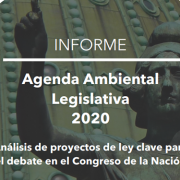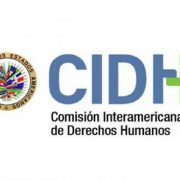Advisory Opinion of the IACHR on the environment and human rights
Following a request made by the State of Colombia on March 14, 2016, for the first time the Inter-American Court developed the content of the right to a healthy environment in its Advisory Opinion OC-23/17 on “Environment and Human Rights”, notified on February 7.
“Below, we offer a google translate version of the original article in Spanish. This translation may not be accurate but serves as a general presentation of the article. For more accurate information, please switch to the Spanish version of the website. In addition, feel free to directly contact in English the person mentioned at the bottom of this article with regards to this topic”
In this document the Court recognized “the undeniable relationship between the protection of the environment and the realization of other human rights“, highlighting the interdependence and indivisibility that exists between human rights, the environment and sustainable development. Therefore, it understands that all rights are vulnerable to environmental degradation, and its full enjoyment depends on an appropriate environment.
In the inter-American human rights system, the right to a healthy environment is expressly enshrined in Article 11 of the Protocol of San Salvador, which establishes the right of everyone to live in a healthy environment and to have basic public services, and the consequent obligation of the States to promote the protection, preservation and improvement of the environment.
In addition, this right is also considered included among the economic, social and cultural rights protected by Article 26 of the American Convention.
The Court clarified that “the human right to a healthy environment has been understood as a right with both individual and collective connotations. In its collective dimension, [..] constitutes a universal interest, which is due both to present and future generations. However, […] it also has an individual dimension, insofar as its violation can have direct or indirect repercussions on people due to its connection with other rights, such as the right to health, personal integrity or life, among others. The degradation of the environment can cause irreparable damage to human beings, so a healthy environment is a fundamental right for the existence of humanity.”
The Advisory Opinion also determined the state obligations for the protection of the environment.
With respect to jurisdiction, States must respect and guarantee the human rights of all people and this may mean, depending on the case in particular and exceptionally, situations that go beyond their territorial limits. In the same sense, States have an obligation to avoid transboundary damage.
In particular, in order to respect and guarantee the rights to life and integrity, it determined that States must comply with the following obligations and principles:
Obligation of prevention: means to prevent significant environmental damage, inside or outside its territory, which implies that they must regulate, supervise and supervise the activities under their jurisdiction, carry out environmental impact studies, establish contingency plans and mitigate the damage that has occurred;
Principle of precaution: States must act in accordance with the precautionary principle against possible serious or irreversible damage to the environment that affects the rights to life and personal integrity, even in the absence of scientific certainty;
Obligation of cooperation: involves cooperation with other States in good faith for protection against significant environmental damage. From this are derived:
- The obligation to notify potentially affected States of possible significant environmental damage caused by activities carried out under their jurisdiction;
- The duty to consult and negotiate with the potentially affected States;
- The duty to ensure the exchange of information between States;
Procedural Obligations: These are obligations that support a better formulation of environmental policies. Among them, States have to ensure:
- Access to information: guarantee access to information on possible effects on the environment;
- Public participation: guarantee the right to public participation of people, in making decisions and policies that may affect the environment.
- Access to justice: guarantee access to justice, in relation to state obligations for the protection of the environment.
It is remarkable that the IACHR determines the content and scope of the procedural obligations, since they are in line with the provisions of Principle 10 of the Rio Declaration on Environment and Development. This principle seeks to ensure that everyone has access to information, participates in decision-making and accesses justice in environmental matters, in order to guarantee the right to a healthy and sustainable environment for present and future generations. In this sense, FUNDEPS, together with several civil society organizations, actively participates in the negotiation process to obtain a Regional Agreement on Principle 10, considering that its concretion will allow strengthening capacities to deal with environmental challenges in the region. .
This Advisory Opinion arose because of Colombia’s concern regarding the “risk” that new major infrastructure projects will seriously affect the marine environment in the region. Everything provided by the Court will allow Colombia to continue advancing in the effective protection of the environment in the Greater Caribbean and the rights and interests of Colombians.
Beyond the effects that the document may have for the State that requested the Opinion, we understand that it constitutes a significant advance in terms of environmental protection for all American States, as it provides interpretative guidelines and completes the sense of the rights contained in the Covenant.
More information
Author
Mayca Balaguer, maycabalaguer@fundeps.org











